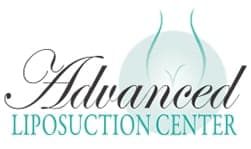What do I need to know about Botox?

Botox is most frequently used for cosmetic reasons, but has also been found to help with some medical conditions. You can learn even more about how it works below.
The Risks of Botox Injections and Botulism
Women who are pregnant or nursing should avoid potential sources of the botulinum toxin. Botox injections are established as safe by the United States Food and Drug Administration (FDA). As of yet, there have been zero cases reported of Botox transfer from a mother to child.
With that said, Botox injections are made up of neurotoxins that, when given in large doses or to people who are allergic to these chemicals, can be dangerous.
Botulism, is the name of the infection or disease caused by botulinum toxins. Botulism is known to be life-threatening in some cases. The risk of dying from botulism is elevated for those with a compromised immune system, with gastrointestinal conditions, pregnant women and infants.
Some research has concluded that the botulinum toxins are too large to pass through the placenta from the mother to the unborn child during pregnancy. More research still need to be done before it is considered completely safe to have Botox injections during pregnancy. While it may turn out that Botox cannot pass from mother to child, pregnant and nursing women are advised to stay away from potential sources of the toxin. This includes Botox injections and certain foods.
Botox Side Effects
It’s vital to be aware of the following side effects of Botox, even though they don’t usually manifest, here are some of them:
Spreading of Botox toxin
Despite its rarity, Botox Cosmetic has the potential to spread and cause major issues. If Botox Cosmetic is injected into regions of your body that are not advised or allowed by the FDA, the risk increases.
The toxin in Botox can spread throughout your body and result in symptoms like muscle paralysis or breathing difficulties, depending on where it travels. It’s also possible to develop botulism, a rare but deadly medical illness.
Heart issues
Botox can very rarely harm your heart. It may result in issues with cardiac rhythm or even heart attacks. If you already have cardiac issues, this may happen more frequently. Before getting Botox, make important to discuss any cardiac issues with your doctor.
Muscle or nerve issues
Because Botox injections can induce muscle weakening, persons who already have nerve or muscle-related issues — such as myasthenia gravis — should be vigilant. Botox might exacerbate your issue.
Responses at the injection site
The most frequent side effects of Botox Cosmetic are pain, bruising, and changes in the color of the skin at the injection site.
These reactions typically occur after an injection momentarily damages a blood vessel. Reactions at the injection site are more likely to appear soon after your therapy and should disappear on their own.
A less frequent injection-related side effect is a local bacterial infection. When the needle breaks the skin and travels into your muscle, it’s possible for bacteria to go in. Making sure the injection site is clean prior to each dose is the best method to avoid this. This should be taken care of as part of the normal preparation for the individual injecting your Botox.
Common sources of food-borne botulism are:
- bottled garlic
- canned fruits and vegetables
- cheeses and cheese sauces
- corn syrup
- fermented meats and fish
- foil-wrapped baked potatoes
- food kept warm for a long time
- home-canned food
- honey
- oil infused with garlic
- spicy peppers (chiles)
- unrefrigerated food
Infants should not be permitted to eat any of the food listed above as they are of particular risk of the effects of botulism.
Are There Any Risks If I Use Botox Repeatedly?
Normally, even if you repeatedly use Botox it’s considered pretty safe especially when done by a qualified professionals, but there are some long-term risks you needed to be aware about. As you continue to get Botox, your muscles will start weakening due to reduced activity, which can lead to muscle atrophy. There are even caused where overuse of Botox leads to skin thinning or changes in facial expressions because of muscle imbalance but this side effect is quite rare. But fortunately, there are no signs or evidences that suggest Botox can cause you some serious long-term health risks , however at the same time remember individual reactions vary. Lastly and luckily, the risks can be greatly minimized if the sessions are spaced appropriately and you are getting treatment from someone experienced!
What Happens If Botox Is Injected Incorrectly?
An incorrectly injected Botox leads to some undesired effects, depending on the injection site. However, commonly you can experience issues like asymmetry, drooping eyelids, frozen facial expressions, or difficulty in swallowing especially if it was injected near the throat muscles. This incorrect placement of Botox can also affect unneeded muscles, which can cause weakness or unnatural look. Although rare, there are chances of it spreading beyond just the targeted area which can lead to temporary complications. Botox results aren’t permanent though, which means within 3 to 6 months everything will be back to normal, which is probably the only time Botox not being permanent is a positive point. Closing a qualified doctor highly increased the risk of such situations, so make sure you pick the best ones.
Why Some People Experience Flu-Like Symptoms After Botox?
This can be quite common since it’s just your body’s immune system responding the Injection. This flue-like feeling is mild and temporary though, and will last only few hours or a day, so there’s nothing to be worried about!
